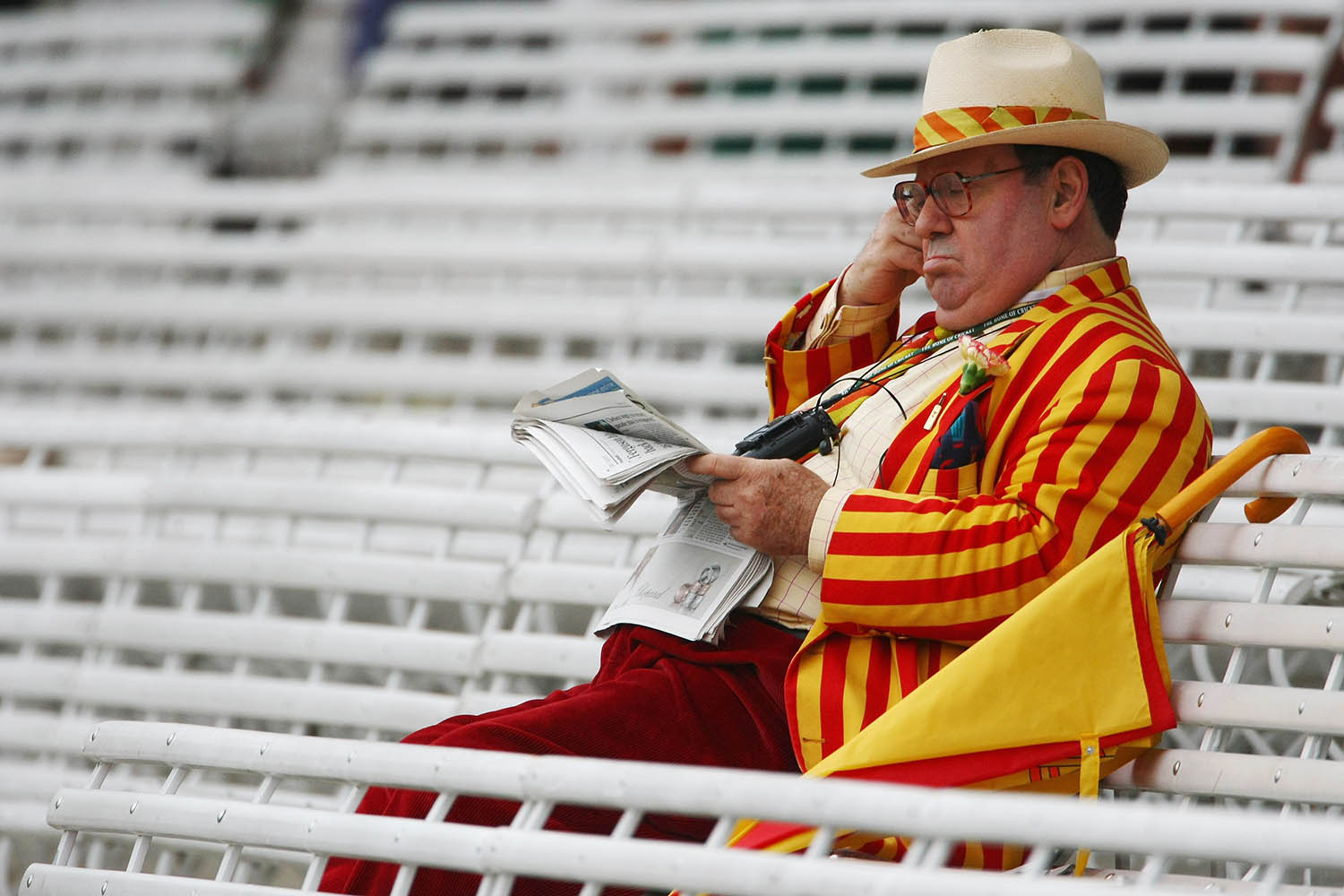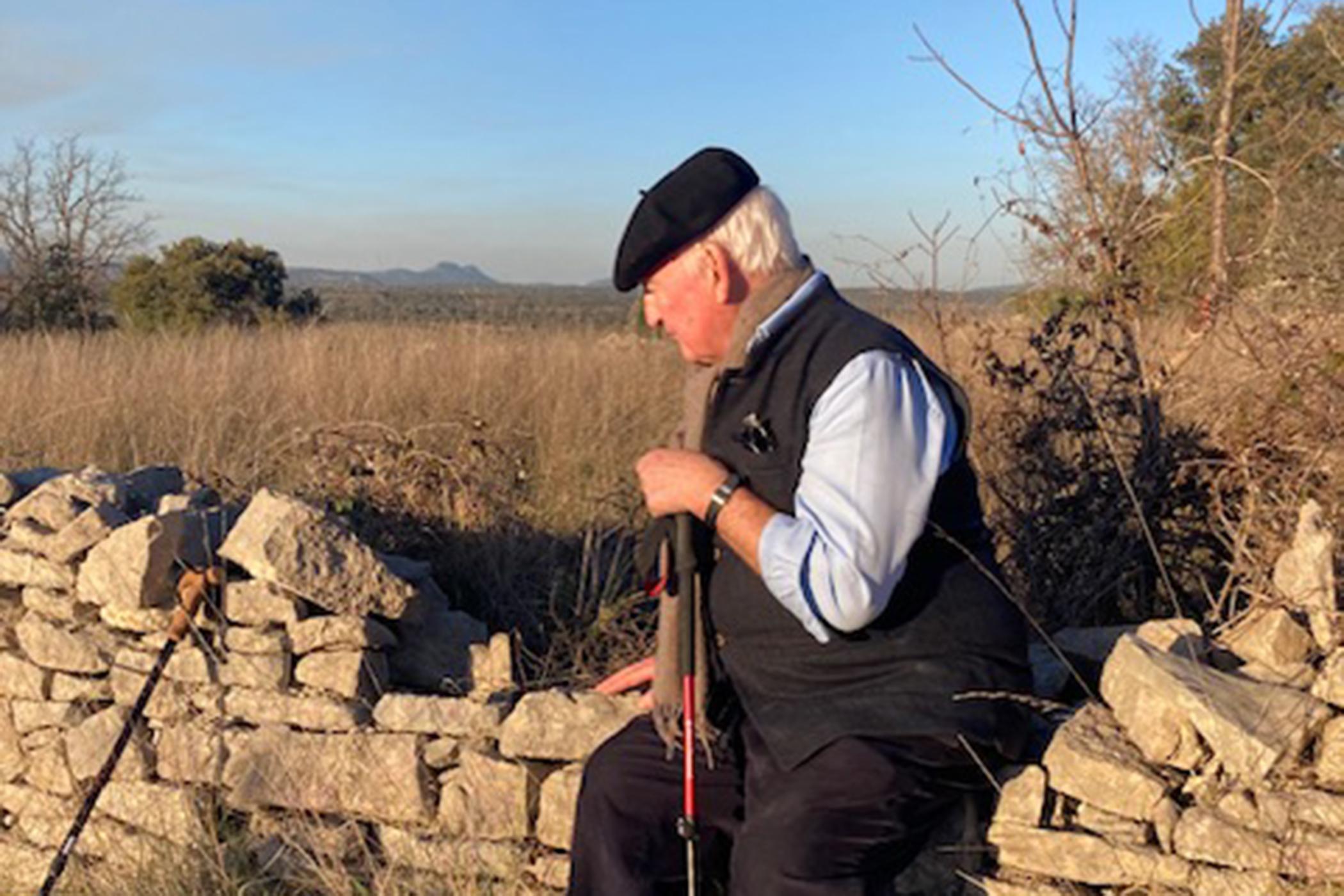For many years, if a picture editor wanted to illustrate a story about Marylebone Cricket Club, they would invariably use a photograph of a well-lunched gentleman sitting, or occasionally snoozing, by the centre aisle in front of the pavilion. If the scribblers wanted a caustic comment, John Fingleton was again an obvious target.
Broad in the beam and as loud in his opinions as in his multicoloured blazers, the man universally known as “Fingers” was hard to miss. When he grew whiskers later in life, he became the most familiar bearded, corpulent man seen at Lord’s since WG Grace, though while the Victorian all-rounder spoke with a Bristolian squeak, Fingleton had a fruity boom that he used to good effect as a highly successful charity auctioneer.
“Fingers was a fantastic performer,” said Tim Rice, the lyricist and a close friend for 50 years. “You didn’t realise how much money you’d been separated from until it was far too late.”
In his day job as an auctioneer Fingleton handled some 500 auctions, raising £11m for charities from the Alzheimer’s Society to World Horse Welfare.
When Fingers was in full flow it could be as impressive as any of the feats at Lord’s, his gavel flashing like a cricket bat to dispatch any hesitantly raised hand and run up the scoreboard. A natural showman, he loved stunts, auctioning bags of air when he detected that the room was anxious to cough up. He was said to have been delighted when Jeffrey Archer went to prison as it removed his main rival.
He could also source memorabilia to sell from one of the most enviable contacts books in sport, entertainment or politics. He collected famous friends, aided by a confident charm that stayed (sometimes) just the right side of bumptious. Visitors to his flat near Baker Street would see a gallery of photos of Fingers and his pals, such as Margaret Thatcher, Mick Jagger and Hugh Grant. “He seemed to know everybody,” Rice said.
Fingleton approached cricket the right way, as something to pass the time between lunch and tea. He was umpiring in a charity match at Windsor Castle when Terry Jenner, the Australia Test spinner, appealed loudly for leg before wicket. Fingleton explained that while it was undoubtedly “plumb”, LBWs had no place in charity cricket, especially when the batsman was as revered as Nicholas Parsons.
John Anthony Fingleton was born in 1948. His older brother, David, was similarly colourful as a barrister and restaurant critic. Fingleton attended Stowe School, a lifelong love. He was active in the debating society, where he proposed that “this House wishes to disown its generation”, and the cadet force, more for barking orders than tackling the assault course. From there he attended Cranbrook School in Michigan, where he deployed his bulk and boom to be a memorable Sir Toby Belch in Twelfth Night.
Fingleton worked as a stockbroker, then in financial PR. After suffering a heart attack in his 40s, he retired to focus on enjoying life with assorted clubs. “He was a great club man,” Rice said, “though he was often thrown out of them.” The final straw for the RAC may have come when he stormed out of the dining room clutching a tough steak, which he put into a club envelope and posted to the chef with a rude message. He was, however, much loved at the Savile Club and the Saints and Sinners Club.
He loved stunts, auctioning bags of air when he detected that the room was anxious to cough up
He loved stunts, auctioning bags of air when he detected that the room was anxious to cough up
In 1968, he joined MCC, there not being the 29-year waiting list there is now. When the club decided in 2020 to allow people to jump the queue if they paid enough, Fingleton led the protests. This was one of many occasions when he irritated the committee. He took them on – and won – over legroom in the rebuilt Warner stand, persuading members to support his motion for an extra 50mm at the cost of 330 seats.
Newsletters
Choose the newsletters you want to receive
View more
For information about how The Observer protects your data, read our Privacy Policy
In 2012, he attracted attention for a rant on the club’s online messageboard about the “great unwashed” during a Twenty20 match. Fingleton wrote he had never seen the pavilion “so crammed with such repulsive, ill-behaved, apologies-for-membership-of-the-human-race”. He defended himself, saying that he was “not snobbish but elitist”.
“He could infuriate and delight in equal measure,” said Andrew Caplan, his nephew, while his brother James described him as “unapologetically forthright”.
The novelist Felix Francis said: “I was warned that he was the second rudest man in the world – and when his brother died he moved up a place – but I found him such good company. He was a great stickler for accuracy. He proofread my books and liked to spot errors. He was always right even if he was wrong.”
Yet, despite the confidence and bluster, he could be very kind. Fingleton was also supportive of female cricketers, writing to The Times to complain that England’s women had not received the same honours as the men.
When, in 2023, MCC members abused the Australians after a piece of sharp practice to dismiss England’s Jonny Bairstow, Fingleton said it would have been more dignified to turn their backs on the players in contemptuous silence. Bairstow was one of many young players he took under his wing. He was also very fond of Ben Duckett, the England opener and a fellow Stoic whom he had known since he was seven. It was appropriate that Fingleton should die on Tuesday, a few hours after listening to Duckett make a century to seal a Test victory at Headingley.
John Fingleton, auctioneer, was born on 15 September 1948, and died on 24 June 2025, aged 76



